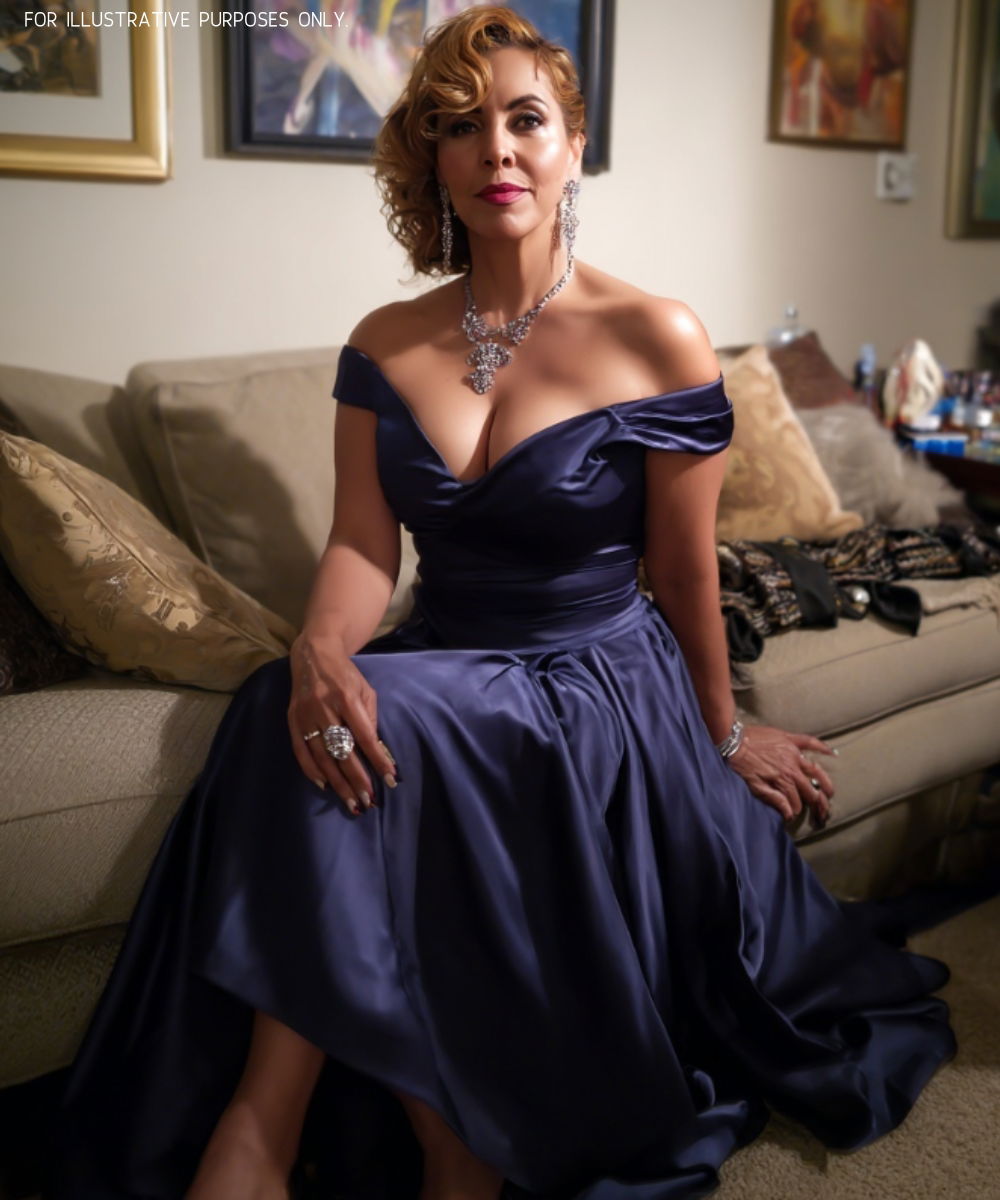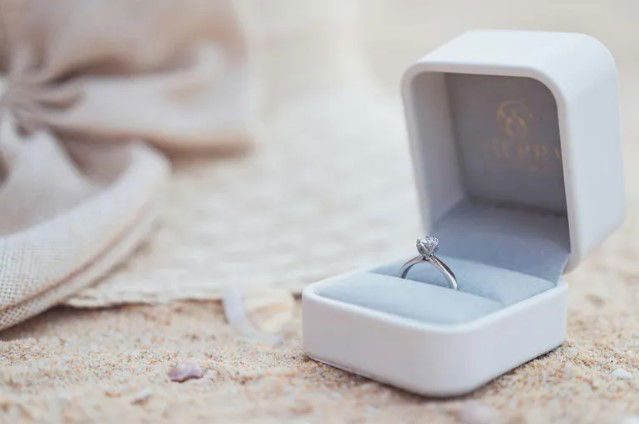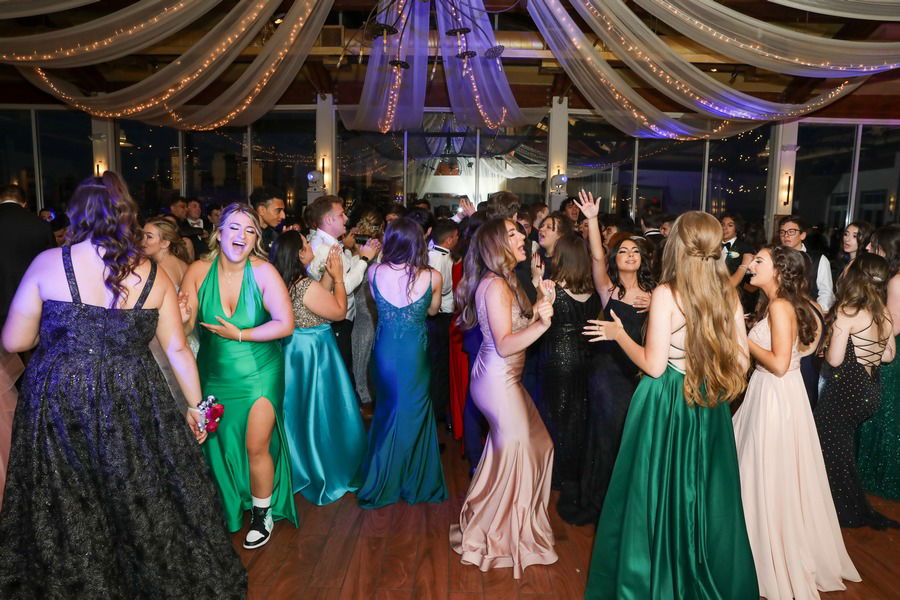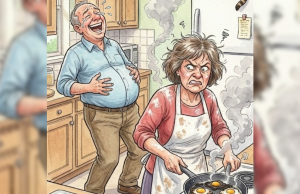
You know that gut feeling that something’s off, but you ignore it because you want it to be real so badly?
That’s how I should’ve felt about Carol from the very beginning. But when you’re just 14 and grieving the loss of your mom, you cling to any glimpse of hope, any sign that life could be okay again.
I convinced myself that Carol might love me like a daughter. That we could be a family.
I was wrong.
It all started two years earlier. After my mom passed away from can/cer, my dad buried himself in work to cope.
That’s when he met Carol—she worked in accounting at his law firm.
She was charming, always dressed to impress, with a voice like honey and a smile that drew people in.
“She’s been through heartache too,” Dad shared one night over takeout.
“Her husband walked out on her when she was trying for a baby. She knows what it’s like to lose someone.”

I wanted to be happy for him. I really did.
He deserved love after all we’d endured. When he proposed six months later, I even helped pick out the ring.
“Are you okay with this?” he asked gently.
“I know it’s quick, but she brings me joy. She truly wants to be a good stepmom.”
I meant it when I said, “If she makes you happy, then I’m happy too.”
The wedding was intimate—just a few close friends and Carol’s sister. She looked radiant, and during her vows, she turned to me with tear-filled eyes.
“Jocelyn, I promise to love you as my own. We’re a real family now.”
I cried that day, believing things might finally be looking up.
In the beginning, Carol played her role well.

She packed lunches with sweet notes, helped with homework, and even took me shopping before the school year started.
“Girl time,” she’d say, winking. “We have to stick together.”
But slowly, the facade began to crumble.
First, it was forgetfulness—no dinner waiting after soccer practice or favorite clothes ruined in the wash. When I mentioned it, she’d look wounded.
“I’m trying, but I’m not perfect like your mom,” she’d whisper, wiping tears. Dad would comfort her while I sat there, feeling guilty for saying anything.
Then came the passive-aggressive remarks.
“That skirt’s a bit short, don’t you think?” she’d ask in front of Dad. “People might get the wrong idea.”

When I made varsity soccer, she barely looked up. “That’s nice. But no one excels at everything, sweetheart.”
Her words always felt like a slap cloaked in politeness.
And when Dad and I laughed at dinner, she’d chime in with, “Don’t you have homework? Grades matter more than giggles.”
Dad tried to defend me. “Carol, she’s a teenager.”
“I’m just giving her structure,” she’d reply sweetly.
But behind closed doors, the sweetness vanished.
“You think the world revolves around you,” she snapped once when I asked to have a friend over. “Your father spoiled you.”
Whenever I tried explaining this to Dad, she’d act horrified.

“I never said that! Jocelyn, why lie?” she’d cry. “Maybe she’s just struggling to accept me.”
Dad would pull me aside. “Sweetheart, she cares about you. Sometimes people don’t express love perfectly.”
So, I kept quiet. For him.
Because he looked happy again, and I didn’t want to ruin that.
Then came prom season. I’d saved for months working at the coffee shop.
I knew exactly what dress I wanted—floor-length, midnight blue satin, with an elegant off-shoulder neckline. I’d dreamed of it since I was 15.
“You’ll look beautiful,” Dad said one morning. Carol gave a tight smile. “I’m sure it’ll be… nice.”
I kept the dress hidden in my closet, still in its garment bag, waiting for my big reveal.

The day of the prom, I got my hair curled at the salon and did my makeup slowly and carefully. I stepped into my dress and felt like a star.
I called out, “Dad! I’m ready!” and headed down the stairs, heart pounding.
Then I stopped, frozen halfway.
There she stood—Carol. In my dress.
Same deep-blue satin, same neckline, same everything.
“Oh, sweetie!” she cooed. “We match! Isn’t it adorable? Like mother and daughter!”
Dad looked stunned. “Carol… why?”

“I didn’t know what dress she chose,” she lied. “I just guessed!”
Right.
Then her voice shifted. Cold, smug. “If I’m paying for this roof, I can wear what I like. It’s not just her night.”
She leaned in and whispered, “No one’s going to be looking at you anyway.”
Those words cut deeper than she could ever know. I looked at Dad, hoping he’d say something—but he looked lost.
“I need to go,” I said quietly. “Marcus will be here soon.”
Prom should’ve been magical. And despite Carol’s sabotage, I tried to enjoy it.
My date was sweet, and my friends rallied around me when they heard what happened.

But then she showed up.
She’d styled her hair like mine and copied my makeup.
“I just want a photo with my stepdaughter!” she announced loudly.
She grabbed my arm, but tripped on the dance floor, crashing into the punch table and flower display. Red punch soaked her dress, petals flew, and everyone stared.
“Why is she in Jocelyn’s dress?!” someone yelled.
Laughter erupted. Phones flashed. “Creepy Carol!” someone called out.
She stood, furious. “You planned this!”
“I didn’t trip you,” I replied. “You did this to yourself.”
At home, she exploded. “You humiliated me!”
Dad appeared. “What’s going on?”
“She wore my dress to outshine me,” I said calmly. “She told me no one would be looking at me anyway.”

Dad’s face went from pale to red. “Carol, is that true?”
“I just wanted to be supportive—”
“You tried to tear her down. That’s my daughter. You crossed the line.”
He turned to me later, tearful. “I should’ve protected you. I’m sorry.”
The next morning, Carol texted: “I was jealous. You have everything I wanted. I’m sorry.”
I never replied.
Some apologies come too late.

But I learned something important that night: when someone tries to dim your light, life has a way of letting them stumble in their own darkness.
And sometimes, that’s the sweetest justice of all.
















